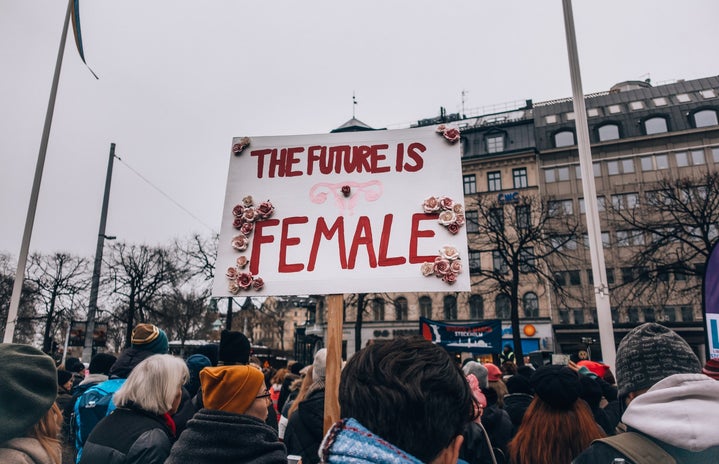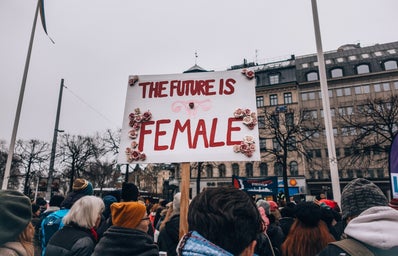On the night of March 3rd, Sarah Everard, a marketing executive was walking home from a friend’s house at 9 p.m. in South London. While walking on the pavements in the cold evening, she called her boyfriend for about 15 minutes discussing to meet with him the day after. After not hearing from Everard the next day, her boyfriend called the police, concerned. On March 10th, a body was found in Southeast England. Two days later, it was confirmed to be Everard’s body.
The suspect, Metropolitan police officer Wayne Couzens, was charged with the kidnapping and murder of Everard. According to the police, Couzens was not on duty during the time of Everard’s disappearance. He also was arrested on separate charges of indecent exposure at a fast-food restaurant three days before Everard went missing, according to the Guardian. Couzens was arrested at his home last Tuesday on the suspicion of kidnapping Everard.
A candlelight vigil was held the day after her body was found throughout the U.K. People mourned Everard’s death at Clapham Common, where she was last seen. According to NPR, feminist organizers planned a “Reclaim the Streets” vigil at the location, despite COVID-19 lockdown restrictions limiting public outdoor gatherings. Ultimately, the organizers canceled the event, but people still came by to lay flowers and pay their respects.
Soon after, some people began making speeches, but because of the restrictions, police quickly intervened, forcibly breaking up the crowds. Women were pushed, handcuffed and pinned to the ground by authorities. This sparked a national outcry of violence against women and criticism of the police.
The British Parliament is proposing to sign a bill that will impose more safety laws for women. U.K. Prime Minister Boris Johnson responded that he was “deeply concerned” by the footage of the police force handling the crowds. He tweeted, “I will do everything I can to make sure the streets are safe and ensure women and girls do not face harassment or abuse.” London mayor, Sadiq Khan, said to LBC, “If you’re a woman or a girl, your experiences of our city, in any public space, whether it’s in the workplace on the streets, on public transport is very different to if you are a man or a boy, and it’s really important that people like me in positions of power and influence understand that and take steps to address that.”
What You Should Know About Gender-Based Violence and Feminist Movements
This ongoing case has not only caused rallying nationally but also internationally of gender-based violence. Different social media users have been reposting the photos and hashtags, “#TextMeWhenYouGetHome,” “#ReclaimtheStreets” and “#SarahEverard.” These messages are said too often to women after meeting a friend or significant other, especially at night. This is often the societal norm of common courtesy to let the other know we are safe from predators.
Gender-based violence is nothing new in our society. Women are often targeted for who they are as their gender, as they are often seen as the weaker and more vulnerable sex than men. The double-standard, misogynistic and rape culture are often the responses of the violence. Phrases such as, “boys will be boys,” “don’t be a pu**y” and “bitch” are most commonly used in everyday language that implies misogyny. With the news media, fashion and beauty industry portraying women to be a specific role, society is often conditioned to think in a misogynistic way. This leads to violence against women, in which women are often blamed for causing the violence because of what they wear or how they act.
Dr. Amanda M. Petersen, a sociology and criminal justice professor at Old Dominion University has done formal research on the criminal legal system and anti-blackness. Throughout her research, Petersen has also worked around the interest of gender equality, feminism and queer studies. She says of the influence of the movement and hashtags, “Anybody would look at this case and say, ‘This is an absolute tragedy, this shouldn’t have happened, what happened to her [Everard] was awful.’” Petersen continues, “While we might have organizations that focus on one thing, I think increasingly activists and organizers, and people who care about these issues are beginning to realize how interrelated these movements are.”
Petersen pointed out the intersectionalities of these social movements, “If we only focus on how do we protect women as a whole, then we’re going to miss the nuances of the unique vulnerabilities that women face,” she includes, “By just focusing on gender, we’re erasing the experiences of transwomen, women who use drugs and women who do sex work, women of color and undocumented women.”
She also says we need to examine how we respond to survivors with the, “could’ve, should’ve, would’ve” narratives. We must not focus on what is expected out of women when violence occurs or what women need to do when they are going through trauma. Generally, the human body goes through a ‘shock’ phase when going through these traumatic events. In psychology, it’s known as, “fight or flight,” response, meaning the body’s sympathetic nervous system is trying to make the decision to, “fight” or flee. Most of the time, the body can flee.
While there seems to be no end to the issue of gender-violence anytime soon, Petersen encourages the importance of educating both sexes.
“The heart of the message of people that we’re bringing is we need to stop blaming women for the violence that is done against them and we need to hold men and boys accountable,” Petersen said, “Which starts with raising boys who respect women, understand consent and have healthy expressions of masculinity.”
In the midst of Women’s History Month and with next month being Sexual Assault Awareness Month, Petersen encourages women to be at the lead of believing and supporting other women.
“Provide vocal and ongoing support and not just when there’s a high-profile case like this,” Peterson said, “We can be at the forefront of creating this culture that believes in and supports survivors.”
This is a developing story. Follow HerCampus ODU to get more updates and info.



